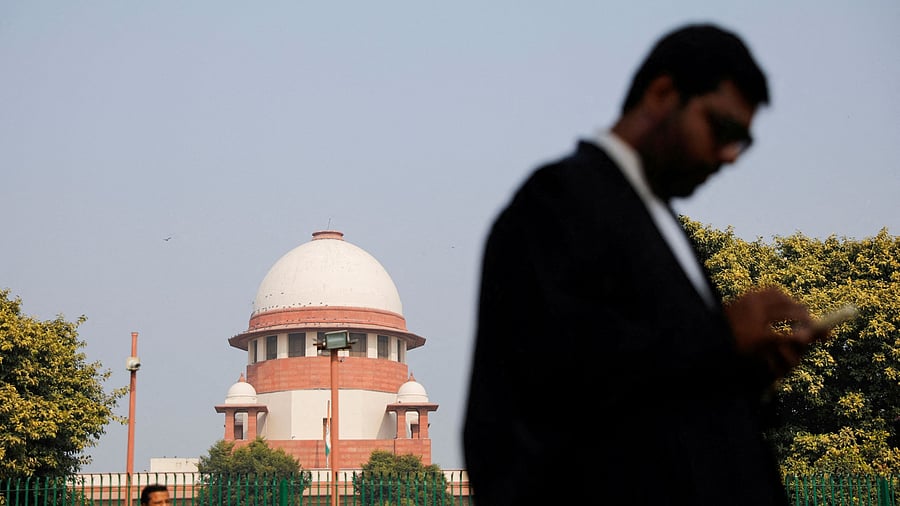
A lawyer looks into his mobile phone in front of Supreme Court
Credit: Reuters File Photo
New Delhi: Within days of ordering the removal of an Allahabad High Court judge from the criminal roster, the Supreme Court has said that it was "disappointed" with another order from the High Court, this time for failing to apply the well-settled principles of law related to the suspension of a sentence of a fixed term.
A bench of Justices J B Pardiwala and R Mahadevan, which on August 4 ordered for taking away criminal jurisdiction from Justice Prashant Kumar till his retirement, set aside the High Court's order of May 29, 2025, declining to suspend the jail term of four years awarded to appellant Aasif alias Pasha.
"This order is one more from the High Court of Judicature at Allahabad with which we are disappointed," the bench said.
Dealing with an application for suspension of sentence under Section 389 of the CrPC, the High Court had said, "considering the fact that the applicant/appellant has been held to be guilty of committing the offence which is not only immoral but also heinous, therefore, this court does not find any good or sufficient ground so as to enlarge him on bail during the pendency of the present appeal".
"We are once again constrained to observe that such errors creep in at the level of the High Court and only because the well-settled principles of law on the subject are not applied correctly," the bench said.
The bench said the High Court should have been mindful of the fact that the appeal was of the year 2024, which is not likely to be taken up in the near future.
"Ultimately, if four years of sentence are to elapse in jail, the same would render the appeal infructuous and that would be a travesty of justice," the bench said.
The bench pointed out that way back in 1999, this court in Bhagwan Rama Shinde Gosai and Others versus State of Gujarat (1999) stated that when a convicted person is sentenced to a fixed period of sentence and when he files an appeal under any statutory right, suspension of sentence should be considered by the appellate court liberally unless there are exceptional circumstances.
"In the present case, what the High Court did was to reiterate the entire case of the prosecution and the oral evidence which has come on record. That is not the correct approach," the bench said.
The court asked the High Court to reconsider within 15 days the matter in which the appellant sought suspension of sentence and enlargement on bail during the pendency of appeal against the four-year jail term awarded to him by a Meerut court for offences under the POCSO Act and SC/ST (Prevention of Atrocities) Act.
"The High Court shall keep in mind that the sentence is for a fixed term, i.e. 4 years, and it is only if there are any compelling circumstances on record to indicate that the release of the appellant would not be in the public interest that the court may order accordingly," the bench said.
The court also emphasised, "it is very important to first look into the subject-matter. Thereafter the court should look into the issue involved. In the last, the court should look into the plea of the litigant and then proceed to apply the correct principles of law."
